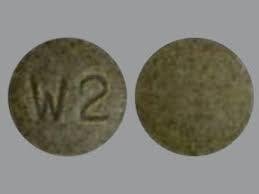Senna
Medically reviewed by Drugs.com. Last updated on Mar 31, 2025.
What are other common names?
- Cassia acutifolia
- Cassia angustifolia
- Cassia lanceolata
- Cassia senna
- Senna alexandrina
- Alexandrian Senna
- Alexandrinische Senna
- Casse
- Cassia Senna
- Fan Xie Ye
- Indian Senna
- Khartoum Senna
- Sen
- Sena Alejandrina
- Senna Alexandrina
- Sennae Folium
- Sennae Fructus
- Sennosides
- Séne d’Inde
- Séné
- Séné d'Alexandrie
- Séné d'Egypte
- Séné de Tinnevelly
- Tinnevelly Senna
- True Senna
What is this product used for?
Senna helps to loosen hard stools and is used as a laxative.
What are the precautions when taking this product?
-
Always check with your doctor before you use a natural product. Some products may not mix well with drugs or other natural products.
-
This product may interfere with some lab tests. Be sure to talk with your doctor about this and all drugs you are taking.
-
Avoid taking this product for longer than 2 weeks.
-
Do not use this product if you have bowel problems like an obstruction or bowel inflammation.
-
Be sure to tell your doctor if you are pregnant, plan on getting pregnant, or are breastfeeding. You will need to talk about the benefits and risks of using this natural product.
-
Take extra care if you are taking drugs to thin your blood. These are drugs like warfarin, heparin, or enoxaparin.
-
Take extra care if you are taking drugs to dissolve blood clots. These are drugs like alteplase, reteplase, or streptokinase.
-
Take extra care if you are taking drugs to help with swelling or inflammation. These are drugs like nonsteroidal anti-inflammatory drugs (NSAIDs), aspirin, ibuprofen, or naproxen.
-
Take extra care if you are taking a diuretic or other drug that may cause potassium or other electrolyte changes. These are drugs like chlorothiazide, chlorthalidone, furosemide, hydrochlorothiazide, and others. Senna can make the electrolyte changes worse.
-
You may have signs of physical dependence or withdrawal if you take this product for a period of time and then stop.
-
Take extra care and check with your doctor if you have:
-
Heart problems
-
Liver problems
-
Bowel problems
-
Hemorrhoids
-
Low levels of potassium
-
What should I watch for?
-
Upset stomach
-
Increased gas
Related/similar drugs
When do I need to call the doctor?
-
Signs of a very bad reaction. These include wheezing; chest tightness; fever; itching; bad cough; blue skin color; seizures; or swelling of face, lips, tongue, or throat. Go to the ER right away.
-
Signs of fluid loss or dehydration. These include dark-colored urine or no urine for more than 8 hours, dry mouth, cracked lips, dry skin, sunken eyes, lack of energy, feeling faint, or passing out.
-
Signs of physical dependence. These include bloating, stomach pain, throwing up, low mood, fainting, blurred vision, and shakiness.
-
Signs of liver problems like upset stomach or throwing up, belly pain, feeling tired, dark urine, yellow skin or eyes, or not hungry.
-
Signs of nerve problems like numbness or tingling in the hands, fingers, feet, toes; muscle weakness; unusually cold hands, feet; or sharp pains in arms or legs.
-
Very bad diaper rash; skin blisters; or shedding of skin in children
-
Extreme weight loss and lack of appetite
-
Very bad throwing up
-
Very bad belly pain
-
Very bad loose stools
-
Enlargement of the tips of the fingers and toes
-
Bruising or bleeding that is not normal.
-
Blood in your stools or dark, tarry-colored stools.
-
Changes in your menstrual periods like lots of bleeding, spotting, or bleeding between cycles.
Last Reviewed Date
2022-04-13Consumer Information Use and Disclaimer
This generalized information is a limited summary of diagnosis, treatment, and/or medication information. It is not meant to be comprehensive and should be used as a tool to help the user understand and/or assess potential diagnostic and treatment options. It does NOT include all information about conditions, treatments, medications, side effects, or risks that may apply to a specific patient. It is not intended to be medical advice or a substitute for the medical advice, diagnosis, or treatment of a health care provider based on the health care provider's examination and assessment of a patient’s specific and unique circumstances. Patients must speak with a health care provider for complete information about their health, medical questions, and treatment options, including any risks or benefits regarding use of medications. This information does not endorse any treatments or medications as safe, effective, or approved for treating a specific patient. UpToDate, Inc. and its affiliates disclaim any warranty or liability relating to this information or the use thereof. The use of this information is governed by the Terms of Use, available at https://www.wolterskluwer.com/en/know/clinical-effectiveness-terms
Copyright
Copyright © 2025 UpToDate, Inc. and its affiliates and/or licensors. All rights reserved.
Frequently asked questions
More about senna
- Check interactions
- Compare alternatives
- Pricing & coupons
- Reviews (311)
- Drug images
- Latest FDA alerts (3)
- Side effects
- Dosage information
- During pregnancy
- Drug class: laxatives
- Breastfeeding
Patient resources
- Senna drug information
- Sennosides Capsules and Tablets
- Sennosides Chewable Tablets
- Sennosides Liquid and Syrup
Other brands
Senokot, Senexon, Senna Lax, Geri-Kot, ... +12 more
Professional resources
Related treatment guides
Further information
Always consult your healthcare provider to ensure the information displayed on this page applies to your personal circumstances.

